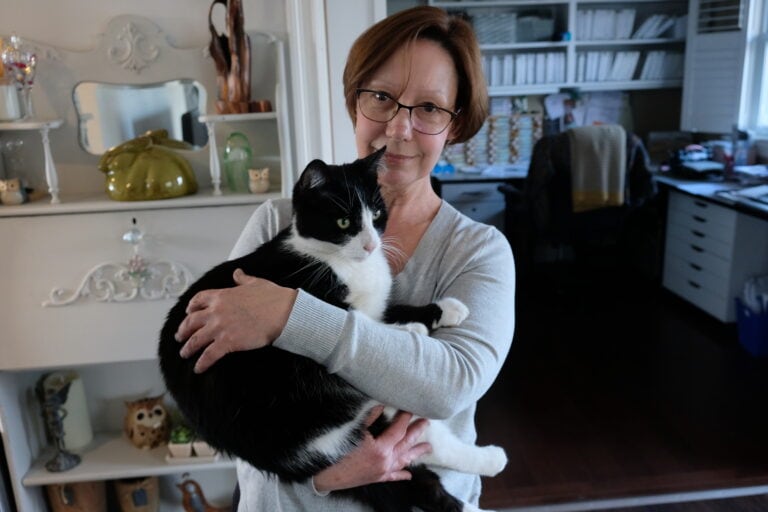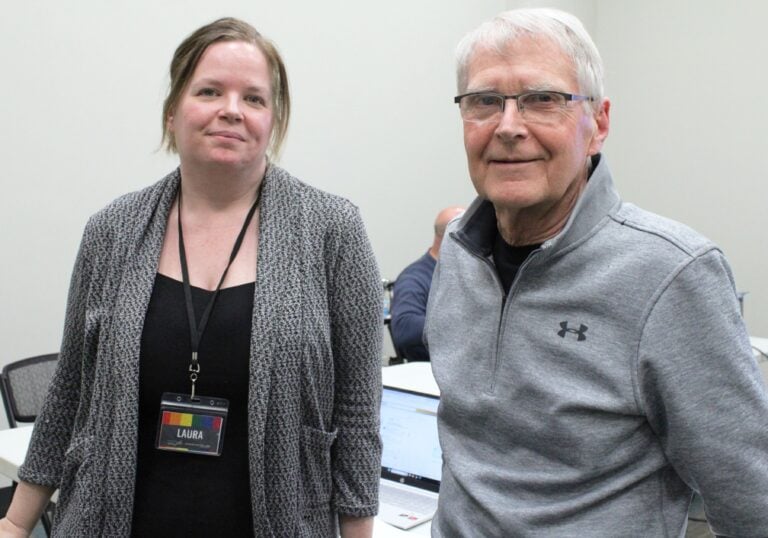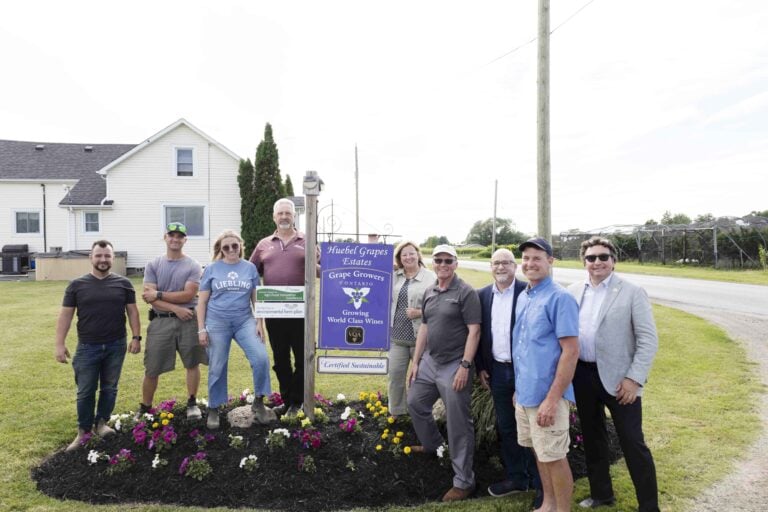Despite the pandemic, Niagara-on-the-Lake Coun. Norm Arsenault wants the environment to stay at the top of people’s minds.
He said right now the environment has been put on the “back burner” in town and he’s hoping to see things kick back into gear.
In late February, the town declared a climate emergency and decided it would form an environmental committee, after global protests shook the world, largely inspired by Swedish teenager Greta Thunberg.
Now Arsenault says it’s time to get back to work.
While the pandemic has dominated life for the past three months, there have been positives and negatives with regards to environmental impact in town and around the world.
Right away, Loblaws implemented a policy of no personal reusable bags at grocery stores, reverting to plastic, which affected businesses in NOTL. Other stores followed.
Arsenault said he understands why they did it.
“When this pandemic first hit, nobody really knew how the virus was being transmitted. So nobody knew if it attached itself to the hard surfaces, to cloth, those kind of things. So they went the safe route with plastic,” he said.
He said he’s talked with store owners who weren’t happy about it, but now they’ve been able to bring back reusable bags.
“When you're lacking specific data, you pretty well have to go to the little bit more on the extreme side and take as many precautions as you can. And that's basically what most companies did. So it has put the environment in the background. Now, it's not a total loss. There are some very positives coming out of this,” he said.
Other benefits have been reduced fuel consumption.
Arsenault said he “used to buy two or three tanks of gas every month” but has only filled up twice in the past three months.
He said all of these things contribute to a healthier global environment.
“There's a blue sky over China, which is practically unheard of. NASA satellites have been noticing that pollution has come down 20 to 30 per cent over the last three months, just because of the fewer factories that are spewing out carbon dioxide, and the number of vehicles that have come off the roads,” he said.
He said he’s going to be pushing for the town to “start coming up with a policy on (its) vehicles, for example, to start moving to zero emission vehicles over the next 10 years.”
He points out right now the town has no zero emission vehicles.
“We have no hybrids, we have nothing like that in town. So I've been pushing for that,” he said.
He also wants better options for recycling in public spaces, solar panels for town offices, permeable asphalt options for subdivisions being built.
And that’s just the tip of the iceberg, as he says there will be “many, many” other ideas coming up.
He said he thinks Mother Nature is trying to say something.
“If COVID-19 has taught us anything, it is that we are not in control of nature. This pandemic is Mother Nature’s way of telling us who is in charge of this planet and of telling us to smarten up because we, as humans and supposedly the more intelligent of the species on this planet, are hell bent on destroying our habitat at an alarming rate,” Arsenault said.
“It took nature 100 million years to create the vast pools of oil under the surface of the earth and within 200 years we will have pumped out every single drop and have caused an environmental catastrophe that will be next to impossible for our children and grandchildren to deal with, all for the sake of creating more stuff that we don’t need and to enrich the few who control these resources.”
He said now that things are opening up, the pollution is starting again, and he doesn't have high hopes that humans have learned anything.
“Within a few weeks of restarting the factories, pollution and grey skies returned with a vengeance. Around the world emissions dropped between 15 and 20 per cent overall due to fewer vehicles on the roads and fewer factories operating. This is what can happen if nature is given half a chance to recover, but I dare say we will not have learned anything and will most likely return to our old ways. I can only hope that I am wrong.”
He said if the world kept running during the pandemic, it should be an inspiration to continue toward reducing emissions.
“One has to wonder that if so many people were able to work from home during this pandemic and based on recent reports, are more productive, why do they need to start driving again and return to an office setting full of noise from phones, colleagues talking and disruptions galore if we don’t have to,” he said.
“Twitter has announced that all 5,000 of their worldwide workforce will now be able to work from home permanently. In Ontario, if we could take 100,000 cars off the road daily, the improvement to the environment would be astounding. Less cars on the road means less pollution, less need for daycare, more family time. Instead of spending two hours or more on the road everyday, spend it with your children; your spouse; have a meal together, something that seems to have vanished from many homes.”
He said we need to think about our own needs and use the pandemic to recharge and connect again with ourselves.
“Over the past few months, we have been given a chance to take a break from the never ending pursuit of something “better,” all of it an illusion because most of us fared pretty well. Yes we were a bit bored but that is because of the ridiculous expectations that we constantly place on ourselves. We need to be able to recharge; to end the never ending pursuit of something 'better'; to be kind to our fellow human beings; to re-evaluate what it is that we really need versus what we think we want and what is really important to us,” Arsenault said.
“So, have we learned anything from this experience with COVID-19 or are we simply going to go back to same-o some-o because if we don’t learn from this experience and make some adjustments, then I dare say Mother Nature is not done with us yet.”










